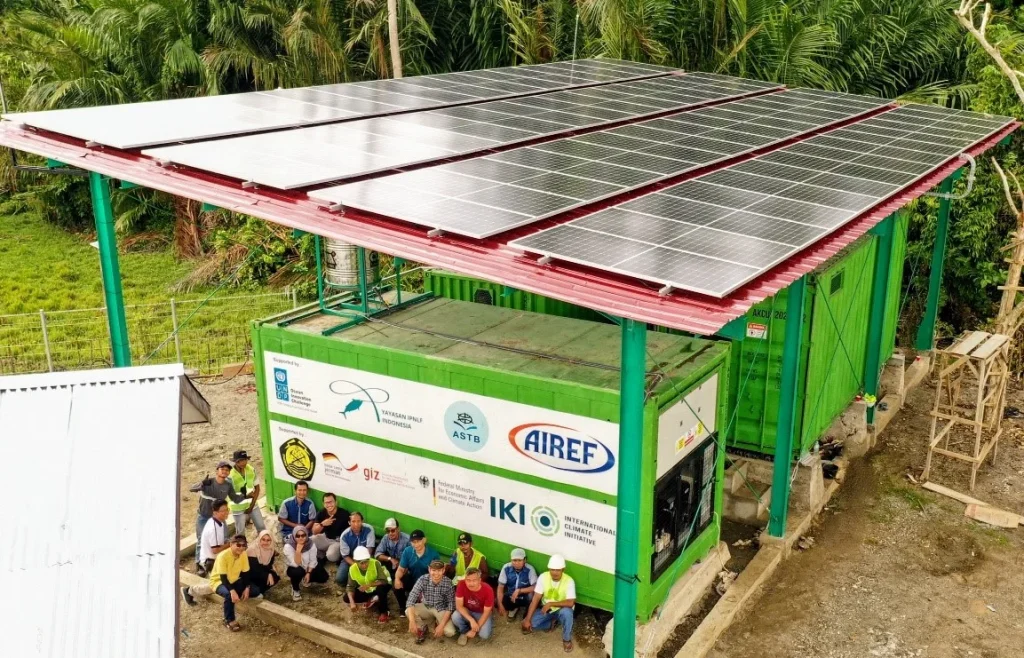
SOCOOL (Solar Cold Chains for Green Economy)
Status
Ongoing
Overall Project Duration
2023–2026
Commissioner
Political Partner
Cooperation Partners
Implementing Organization
GIZ
Project page on organization website
Project Documents and Links
- N/A
Background
Indonesia’s food systems, especially in fisheries and coastal regions, depend heavily on cold chain infrastructure to maintain product quality and reduce post-harvest losses. However, the vast majority of cold storage facilities operate on fossil fuels, making them a major contributor to energy-related CO₂ emissions. As Indonesia moves toward its Net Zero Emissions (NZE) target by 2060, the decarbonization of cold chains—particularly in isolated and coastal areas—emerges as a key challenge and opportunity.
The SOCOOL project addresses this issue by integrating solar energy into cold storage systems, thereby enabling cost-effective, off-grid, and low-emission solutions for regions where energy access remains limited or unreliable. The project is particularly focused on the fisheries sector, which requires temperature-sensitive logistics but often lacks efficient infrastructure. By improving both energy access and environmental performance, SOCOOL contributes to national RE targets, strengthens blue-green economic integration, and improves the livelihoods of small-scale fishers and coastal communities.
Project Approach
SOCOOL works through a multi-stakeholder, applied innovation model that links government, private sector, applied research institutions, and donors. It introduces solar-powered technologies to replace diesel-based cold chain solutions, aiming to simultaneously lower operational costs and environmental impact. The project focuses on three core pillars: national planning, technology partnerships, and demonstration scaling.
At the policy level, SOCOOL supports the development of technical standards, policy recommendations, and institutional coordination mechanisms to enable long-term integration of solar solutions into public infrastructure and government programming. The project has established a Steering Committee consisting of KKP, MEMR, and Kemenkomarves to anchor implementation and policy dialogue.
From a technical standpoint, SOCOOL collaborates with local and international tech providers to design and pilot solar-optimized cold storage systems that are tailored to the Indonesian context. These solutions are tested in real operating environments and include technologies like solar ice makers and hybrid PV systems for fish preservation.
Demonstration activities serve as learning platforms to engage broader stakeholders. By documenting outcomes and lessons learned, SOCOOL builds evidence for replication, investment mobilization, and integration of solar cooling into broader supply chains. The project also explores international best practices in solar cooling and adapts them into practical, replicable solutions for Indonesian fisheries.
Desired Impacts
SOCOOL seeks to create a transformative impact in Indonesia’s energy and fisheries sectors by making solar cooling a mainstream, reliable solution for cold chain development. It demonstrates that solar technologies are not only feasible but economically viable in coastal and off-grid areas. Through its interventions, SOCOOL aims to contribute up to 140 MWp of new solar capacity annually by embedding solar systems into cold chain expansion plans.
The project estimates an annual savings of approximately USD 2.8 million in the food and beverage sector in regions like Maluku. These savings stem from reduced diesel use, lower fuel logistics costs, and minimized spoilage of perishable goods. Additionally, the project supports the development of national PV-cold storage standards, which help public and private actors design and implement high-quality systems across the archipelago.
By enabling decentralized clean energy access in economically strategic sectors like fisheries, SOCOOL not only reduces emissions but also enhances Indonesia’s export competitiveness. It empowers communities and strengthens climate resilience by making food systems more efficient, adaptive, and sustainable.
Project Activity Areas (Outputs)
National Planning
Technology Partnerships
Demonstration and Market Development
Project Publications
Project Updates
Tools
SEA Information Platform for the Energy Transition (SIPET)
The Southeast Asia Information Platform for Energy Transition (SIPET) is a one-stop platform for information and knowledge exchange about the energy transition in the region. SIPET aims to be a central launch pad for energy transition stake holders to facilitate dialogue and promote coordination in the Southeast Asia power sector.
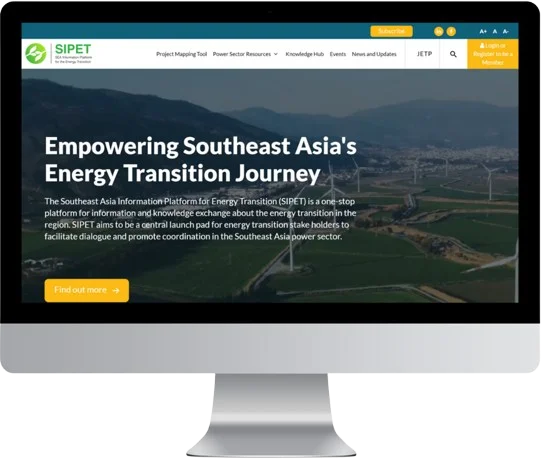
Bio DB
BioDB is a useful website for providing general information, encouraging discussion and conversation on the topic of bioenergy from agro-industrial waste. The data and information presented were collected by the Strategic Exploration of Economic Mitigation Potentials through Renewables (ExploRE) project, a project funded by the Federal Ministry for the Environment, Nature Conservation and Nuclear Safety (BMU), Federal Republic of Germany, in collaboration with the Ministry of Energy and Mineral Resources (ESDM) of the Republic of Indonesia, and implemented by the Deutsche Gesellschaft für Internationale Zusammenarbeit (GIZ)
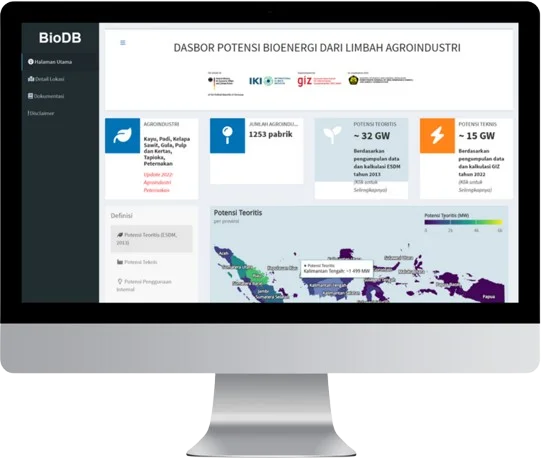
IKI JET
The global energy transition away from coal to renewable energy is threatening local livelihoods, economic activities and jobs, but also holding opportunities for sustainable, low carbon development. The project aims at supporting key stakeholder of coal regions to plan for and implement regional just energy transition pathways away from coal and towards a low-carbon energy system. Focusing on the regional economic transformations, the project works with government, industry, unions, communities, civil society, and academia. It supports interregional peer-to-peer exchange, learning, and policy dialogue in an international network and information sharing via a knowledge hub. In Indonesia, it supports the development of specific transition plans in two coal regions. In Colombia, it supports the development of the concept and framework for energy communities and the implementation of just and inclusive energy communities in César and la Guajira.
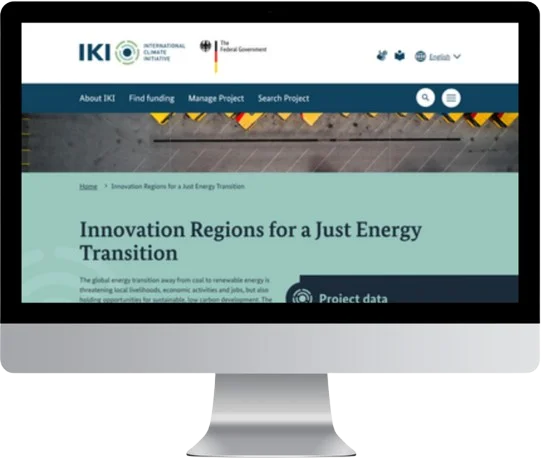
CASE for Southeast Asia
The “CASE for Southeast Asia” website is dedicated to the promotion of clean, affordable, and secure energy transitions across Southeast Asia. The website focuses on the provision of resources, the conducting of research, and the facilitation of collaborative projects in countries such as Indonesia, Thailand, the Philippines, and Vietnam, with the aim of supporting energy transition efforts. The platform highlights the challenges and opportunities in the region’s energy sector, while sharing knowledge, best practices, and policy recommendations aimed at advancing the transition to renewable energy and sustainable development
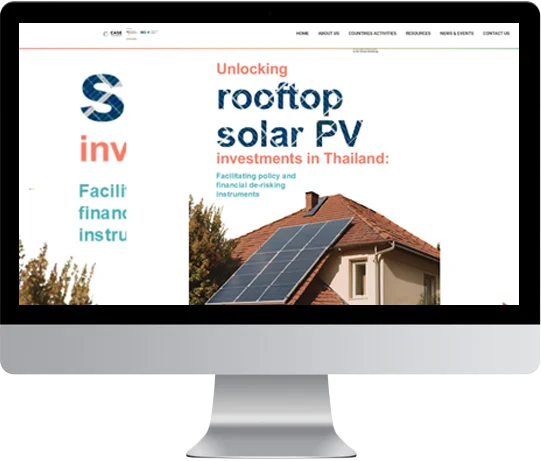
Contact
Project Address
De Ritz Building, Floor 2
Jl. HOS Cokroaminoto No. 91, DKI Jakarta, Indonesia
Frank Stegmüller
Commission Manager SOCOOL


